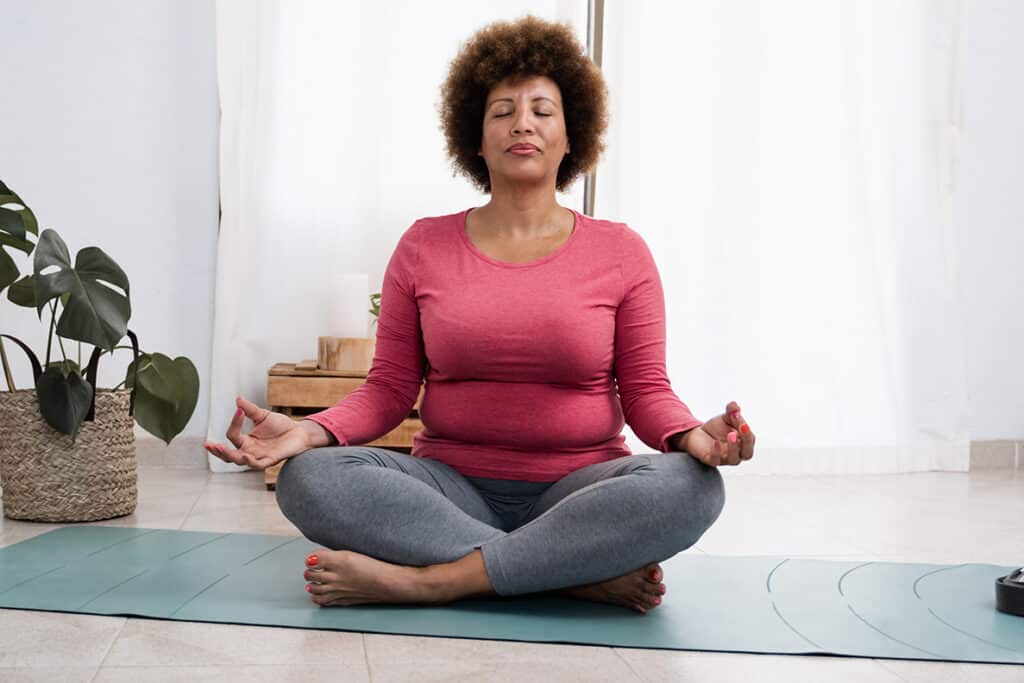
Mental Health
Diabetes Can Affect Your Mental Health
Definitions in Mental Health
Stress is how your body reacts to a rise in demands in your life.
Anxiety is a very strong feeling of being nervous or worried.
Depression is a constant feeling of apathy, sadness, or loss.
Stress, anxiety, and depression are common in people living with diabetes. Diabetes can make you feel weak and exposed. You may feel hopeless or helpless as you try to manage your disease.
Having stress, anxiety, or depression can make it even harder to manage diabetes. You are not alone. Talk to your doctor about how to manage these conditions.
Stress
Stress is how your body reacts to a rise in demands in your life. Diabetes causes a rise in demands which can be stressful. When these demands do not go away, you may feel like you have no control in your life. Stress changes your mood and lowers your drive to get things done. These things include managing your diabetes.
Change your life and make a choice to do so. Making a choice to change will lower your stress. Focus on things you can control and let go of things you cannot. Each person feels stress differently. Your thoughts, actions and how you react to something can improve how you deal with stress.
Practice the skills below to manage your stress. Most of these skills can be learned within a week.
- Name the feeling you have and choose to change anyway. For example, “I feel out of control,” “I feel like this is too much”, or “I feel helpless”. Once you accept how you feel, do something that helps you connect with your body.
- Notice your body’s signals. Knowing when these signals happen can take away your feeling of being out of control. If this does not work take the time to talk to a friend (someone you can talk to honestly). See if you can find one small step you can start with to make healthy changes.
- Try relaxation techniques, such as progressive muscle relaxation.
Watch an example of progressive muscle relaxation » - Try diaphragmatic breathing (learning to breathe from your diaphragm or stomach).
- Try mindful breathing.
- Try visualization.
- Try affirmations (think good things about yourself).
- Try body scan meditation.
Watch an example of body scan meditation »



Learn more ways to manage stress »
Anxiety
Anxiety is a very strong feeling of being nervous or worried. This condition is common when you have diabetes. Anxiety can affect how well you control your diabetes and can mean you are less able to take care of yourself.
Anxiety has many signs. Think about how you have been feeling over the past 2 weeks. You may have anxiety if you are:
- not able to relax
- worrying constantly
- feeling tense
- finding it hard to focus
- in a bad mood
- agitated (made upset or troubled) easily
- having trouble falling asleep or staying asleep
- short of breath
- having problems with your bowels, such as nausea, gas, bloating, stomach discomfort, diarrhea (poo is loose or watery), or constipation (trouble having a poo)
Learn more ways to manage anxiety »
Depression
Depression is a constant feeling of apathy, sadness, or loss. It can affect your thoughts, behaviours, and feelings. Depression is common in people with diabetes. It can lead you to have less control over your disease.
Depression has many signs. Think about your mood over the past 2 weeks. You may have depression if you:
- do not enjoy the activities that you often enjoyed
- feel hopeless or sad
- have a hard time falling asleep or staying asleep
- have low energy
- have changes in how you eat, either more or less
- have bad thoughts about yourself
- find it hard to focus
- have lost your interest in sex
- feel angry or get annoyed easily
- have thoughts of death or suicide
Safety Alert
Talk to someone (such as your doctor, family member, friend, or Crisis Line) right away if you are having thoughts of death or suicide.
Manage Stress, Anxiety, and Depression
- Talk to your doctor. Tell your doctor how you are feeling and get help to improve your mental health.
- Be social. Join a group, connect with old friends, get involved in your community, or volunteer.
Find out more about building healthy relationships » - Get active. Find an exercise that you enjoy and that is safe. Try to get at least 20 to 30 minutes of exercise each day.
Find out how to get active »
